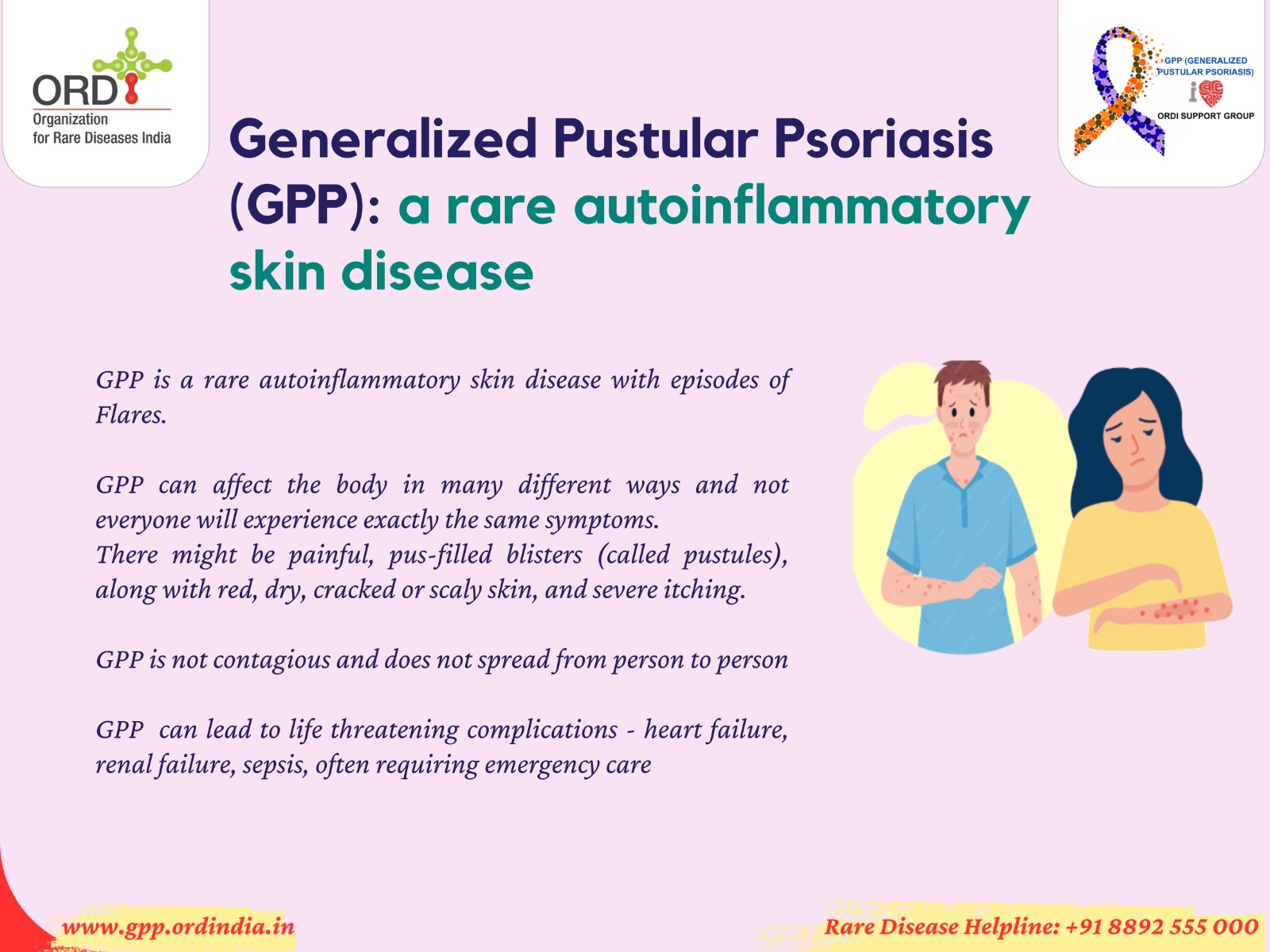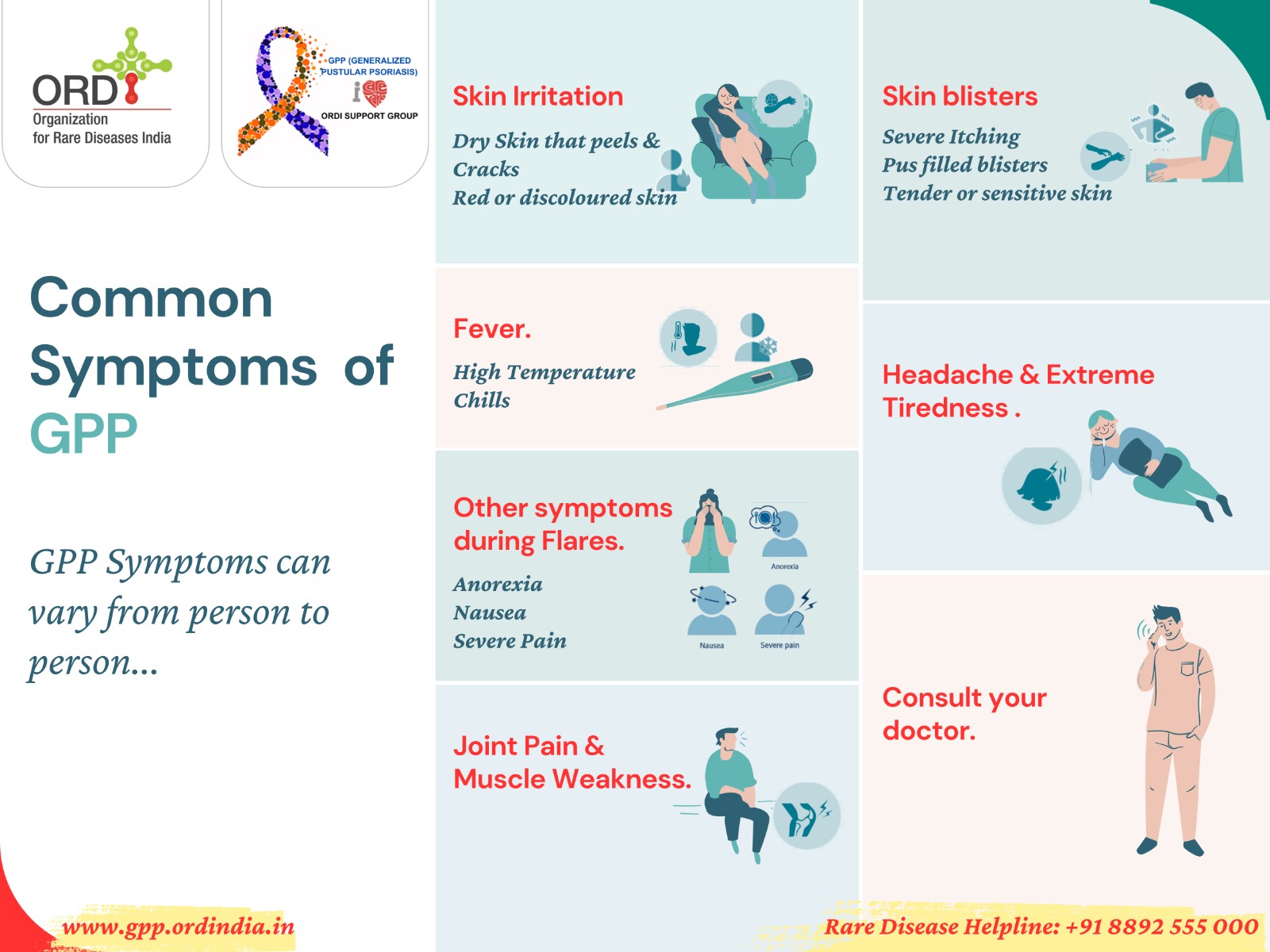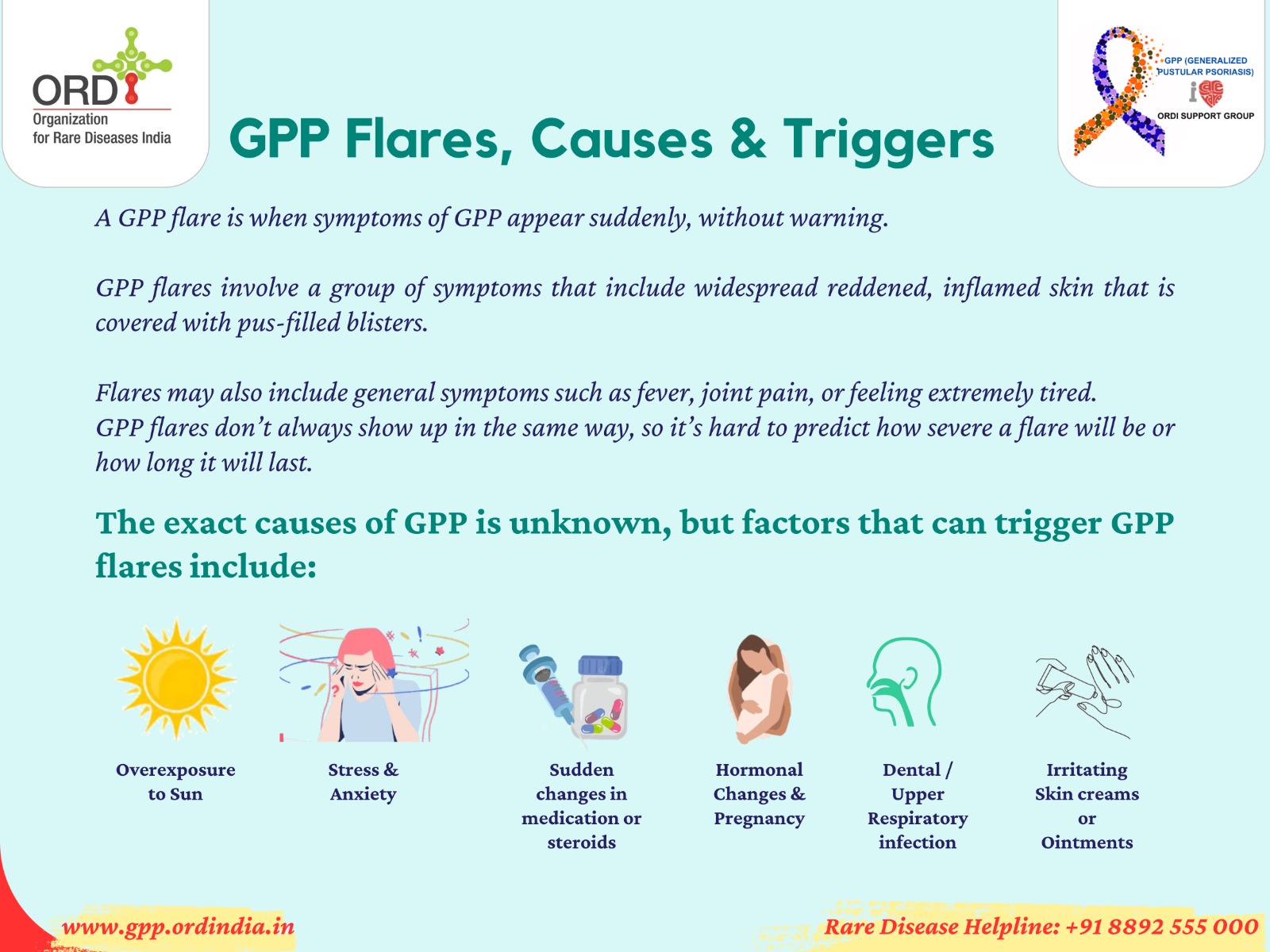Being aware of GPP symptoms may help you to recognise them early, so that you can get the correct diagnosis as soon as possible. If you’re living with GPP, you might experience skin symptoms that cover large parts of the body.
You may find that your symptoms are unpredictable and appear very suddenly. If the symptoms are not treated, in rare cases, they can be life-threatening.
For this reason, it’s important that you talk to your doctor about any symptoms you are experiencing, and how long you have had them. You might find it helpful to make notes before your doctor’s appointment so that you remember everything you want to say. You could also use the symptom tracker on the following pages to help you track your symptoms over time. This can help you better understand your symptoms and talk to your doctor about them.
RECOGNISING FLARES EARLY
Paying attention to how you feel before a flare and tracking your symptoms between flares can help you to monitor your disease and potentially identify your triggers. Recognising flares, and what triggers them, may even help you to manage your disease and help you to feel more in control of your GPP.
In the lead up to a flare, you may feel unwell and experience a general feeling of uneasiness, extreme tiredness, chills, decreased appetite or nausea.
The flare may start with fiery red, tender skin, followed by painful blisters and dry, scaly skin. The blisters may join together. Once the blisters burst, new blisters may appear.
MANAGING FLARES
If you feel a flare coming on, you may require medical care. It’s important to get the right treatment as soon as possible for the best results. You should contact your dermatologist as soon as possible.
If you need medical attention when you are away from home, you can keep the details in the card below to help any healthcare provider contact your dermatologist.
This way, any healthcare provider can talk to your dermatologist first before giving you treatment.
GPP CAN AFFECT YOU SOCIALLY & EMOTIONALLY
GPP is not just about your skin, its impact could be felt in your life all the time, even between flares. It may interfere with the way you interact with people & socialise.
Living with GPP is not easy, but it’s important to know that there are ways to help manage your disease. Staying connected to a support network of friends, family can help. Communities & patient organisations may also help you feel connected to others who may be experiencing something similar.
When GPP is managed well and you have support, it shouldn’t stop you from living your life.
THINGS YOU CAN DO TO TAKE CARE OF YOUR HEALTH
- Limit your time in the sun, wear sunscreen. Too much exposure can trigger a flare
- Stay active & eat healthy food
TAKE CARE OF YOUR MENTAL HEALTH
- Stress can be a trigger for a GPP flare. Establishing a relaxation routine may be helpful in reducing stress
- Light exercises from home at your own pace and on your own time
- If you need more support, consider talking to a therapist individually or in a group
- Being around people that you love and trust can boost your energy and lift your spirits
- Reading a book or listen to music – anything that brings a sense of calm or joy may help
EXPLAIN GPP TO PEOPLE AROUND YOU
GPP is a rare disease so most people have never heard of it. Being open about what you’re going through will help your friends and family understand – and it may help you feel better to share your experience.
Easy ways to explain GPP to others:
- GPP is an Immune disease
- It’s not Contagious
- Flares are unpredictable







